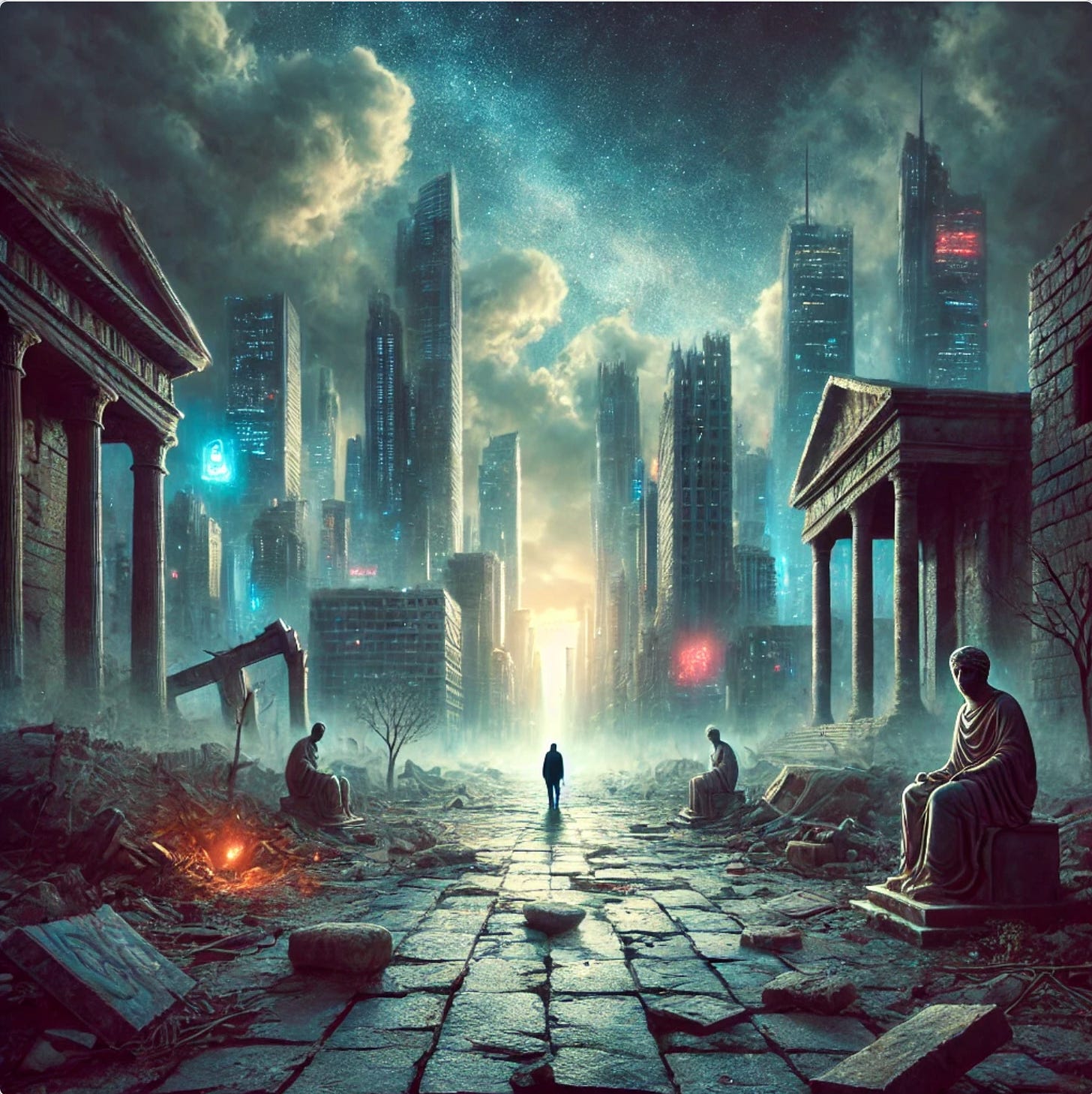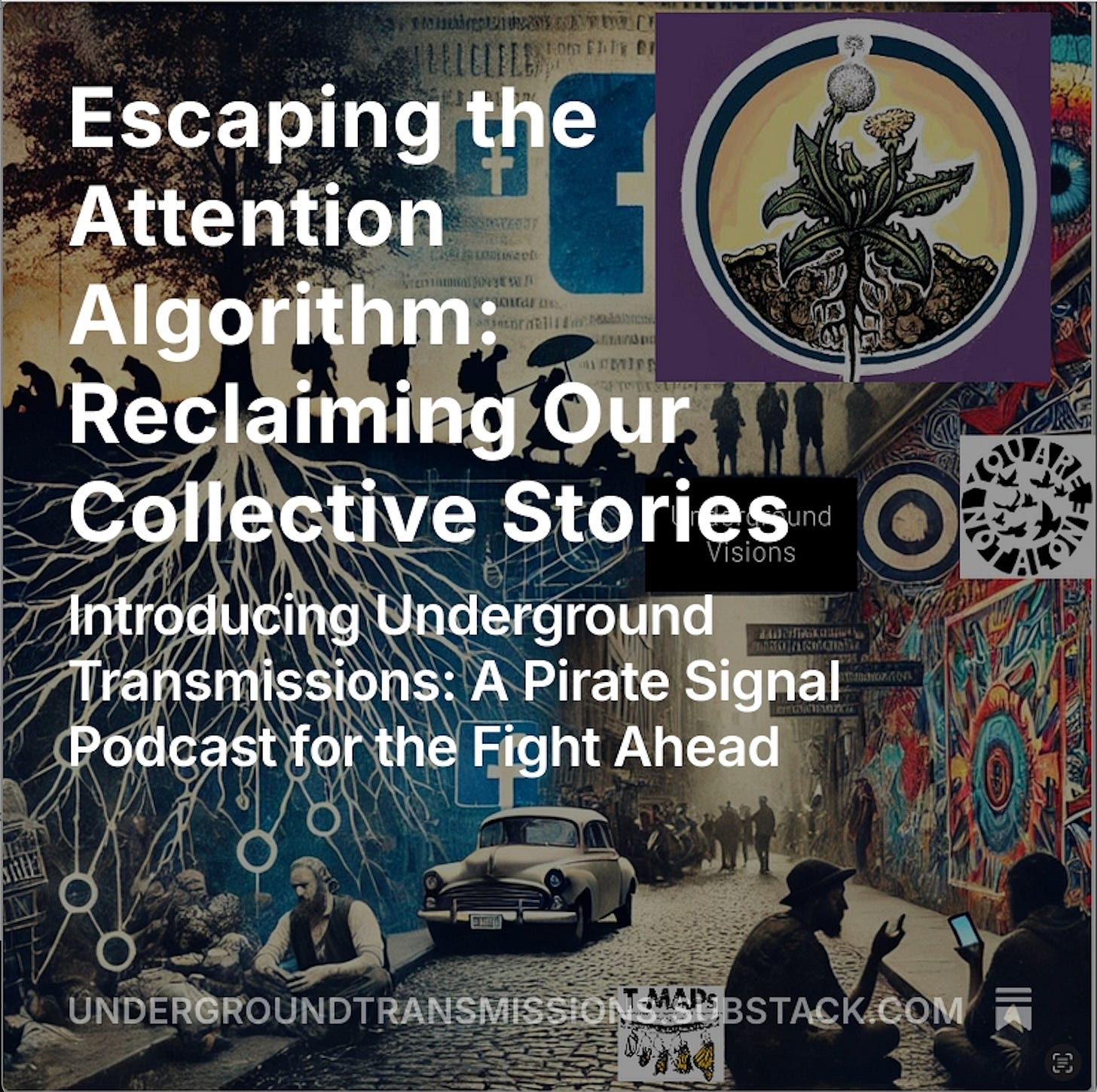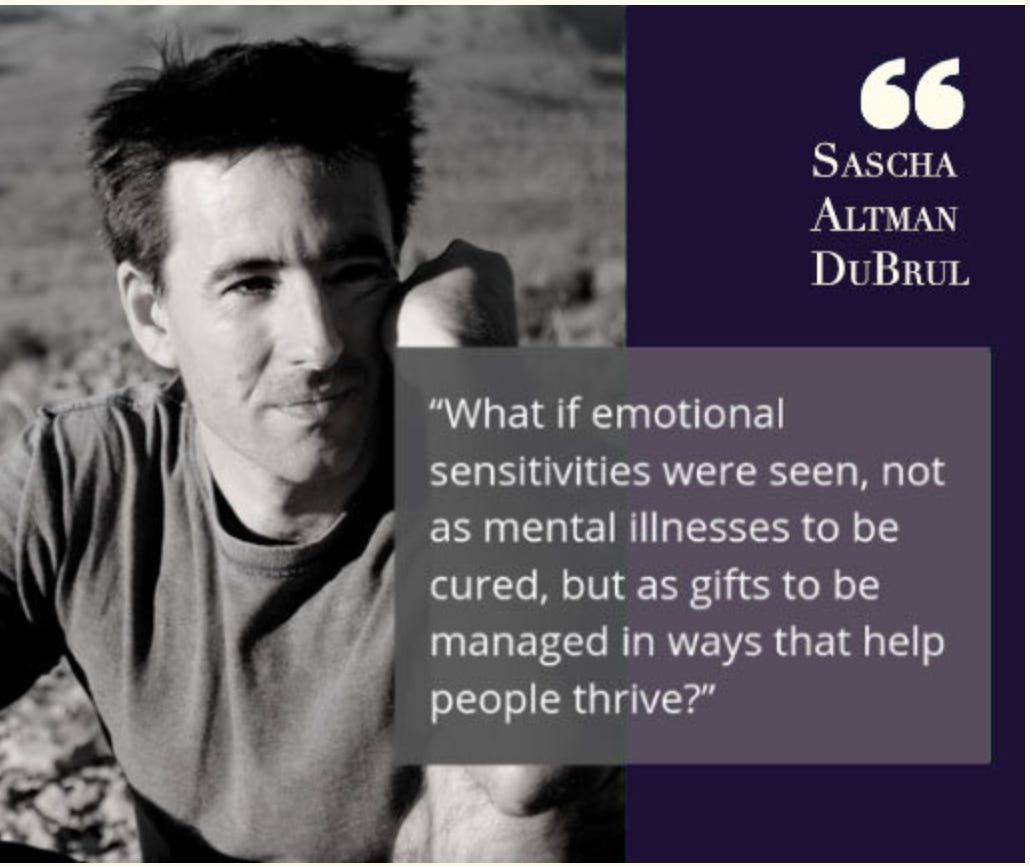It took me a long time to realize that my delusions of grandeur were intricate labyrinths built to protect something raw, something unbearable.
And once I understood that, it took even longer to learn how to wield those delusions—to shape them into spaces where others could step in, where they could feel safe. Or to step into the grandeur of others, navigating their worlds as if they were my own.
There’s a trick to it, a kind of dance. Moving between realities. Holding them all dear. Taking what’s luminous, what’s useful, leaving behind what traps you. Making maps so you don’t get lost, so others can follow. Knowing when to speak, when to listen, and when to simply keep your mouth shut.
Now, all these years later, I see the psychic architecture around me when I squint just right. The delusions of grandeur that surround us, solidified into skyscrapers and tunnels, highways and monuments. The visions of the powerful encased in steel and concrete. I let myself be carried by the intensity of star-filled skies and crowded streets, the weight of history layered beneath the pavement, the ghosts whispering their unfinished stories. I want to be part of it. I want to play my role in the universal song. But there’s one thing I know for sure now:
The line between grandeur and delusion is power.
The poor get locked up for their visions. The rich build theirs into reality.
And now, in 2025, we’re living inside the fever dream of billionaires and demagogues, a world shaped by their unchecked fantasies while the rest of us are told we’re the crazy ones.
And the rest of us? We walk through the wreckage of their dreams, carrying their psychic scraps in our heads.
*
In 2016, I was working on a state-run crisis team in Manhattan. We were sent to the homes of people deemed a danger to themselves or others—people the system labeled psychotic. One day, I sat in a darkened apartment with a 19-year-old who believed the NSA was coming to kill him. His world was constructed of tinted windows, coded numbers, unseen forces closing in. The way he spoke, the way his paranoia shaped the air in the room—I knew this place.
It was my job to decide whether he should be hospitalized and medicated against his will.
But here’s the thing: he felt like kin to me. One of my own. His fears weren’t alien or incomprehensible. I knew the way sleep deprivation sharpens stories into gospel, how one thought can become the only thing that matters while the rest of the world fades into static. I had lived it. I still visit it in my sleep.
There was so much I wanted to tell him. Instead, I just sat there, feeling the quiet joy of recognition.
Most clinicians would see a patient with a severe mental illness.
I saw someone holding the keys to change the entire system.
And my job?
To figure out how we do it together.
:*The title of this post is from a classic old Alice Donut song which I still love
Find me in my public/private practice:






